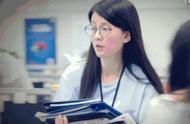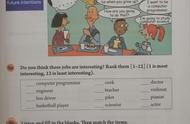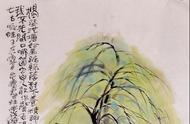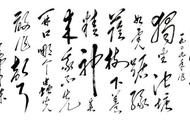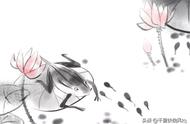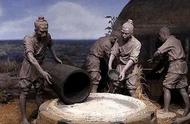The Land of the Lock
Bob Greene
In the house where I grew up, it was our custom to leave the front door on the latch at night. I don't know if that was a local term or if it is universal; "on the latch" meant the door was closed but not locked. None of us carried keys; the last one in for the evening would close up, and that was it.
锁之国
鲍伯·格林
小时候在家里,我们的前门总是夜不落锁。我不知道这是当地的一种说法还是大家都这么说;"不落锁"的意思是掩上门,但不锁住。我们谁都不带钥匙;晚上最后一个回家的人把门关上,这就行了。
Those days are over. In rural areas as well as in cities, doors do not stay unlocked, even for part of an evening.那样的日子已经一去不复返了。在乡下,在城里,门不再关着不锁上,哪怕是傍晚一段时间也不例外。
Suburbs and country areas are, in many ways, even more vulnerable than well-patroled urban streets. Statistics show the crime rate rising more dramatically in those allegedly tranquil areas than in cities. At any rate, the era of leaving the front door on the latch is over.在许多方面,郊区和农村甚至比巡查严密的城市街道更易受到攻击。统计显示,那些据称是安宁的地区的犯罪率上升得比城镇更为显著。不管怎么说,前门虚掩不落锁的时代是一去不复返了。
It has been replaced by dead-bolt locks, security chains, electronic alarm systems and trip wires hooked up to a police station or private guard firm. Many suburban families have sliding glass doors on their patios, with steel bars elegantly built in so no one can pry the doors open.取而代之的是防盗锁、防护链、电子报警系统,以及连接警署或私人保安公司的报警装置。郊区的许多人家在露台上安装了玻璃滑门,内侧有装得很讲究的钢条,这样就没人能把门撬开。
It is not uncommon, in the most pleasant of homes, to see pasted on the windows small notices announcing that the premises are under surveillance by this security force or that guard company. 在最温馨的居家,也常常看得到窗上贴着小小的告示,称本宅由某家安全机构或某个保安公司负责监管。
The lock is the new symbol of America. Indeed, a recent public-service advertisement by a large insurance company featured not charts showing how much at risk we are, but a picture of a child's bicycle with the now-usual padlock attached to it.锁成了美国的新的象征。的确,一家大保险公司最近的一则公益广告没有用图表表明我们所处的危险有多大,而是用了一幅童车的图片,车身上悬着如今无所不在的挂锁。
The ad pointed out that, yes, it is the insurance companies that pay for stolen goods, but who is going to pay for what the new atmosphere of distrust and fear is doing to our way of life? Who is going to make the psychic payment for the transformation of America from the Land of the Free to the Land of the Lock?广告指出,没错,确是保险公司理赔失窃物品,但谁来赔偿互不信任、担心害怕这种新氛围对我们的生活方式所造成的影响呢?谁来对美国从自由之国到锁之国这一蜕变作出精神赔偿呢?
For that is what has happened. We have become so used to defending ourselves against the new atmosphere of American life, so used to putting up barriers, that we have not had time to think about what it may mean.因为那就是现状。我们已经变得如此习惯于保护自己不受美国生活新氛围的影响,如此习惯于设置障碍,因而无暇考虑这一切意味着什么。
For some reason we are satisfied when we think we are well-protected; it does not occur to us to ask ourselves: Why has this happened? Why are we having to barricade ourselves against our neighbors and fellow citizens, and when, exactly, did this start to take over our lives?出于某种原因,当我们觉得防范周密时就感到心满意足;我们没有问过自己:为什么会出现这种情况?为什么非得把自己与邻居和同住一城的居民相隔绝,这一切究竟是从什么时候开始主宰我们生活的?
And it has taken over. If you work for a medium- to large-size company, chances are that you don't just wander in and out of work. You probably carry some kind of access card, electronic or otherwise, that allows you in and out of your place of work. Maybe the security guard at the front desk knows your face and will wave you in most days, but the fact remains that the business you work for feels threatened enough to keep outsiders away via these "keys."这一切确是主宰了我们的生活。如果你在一家大中型公司上班,你上下班很可能不好随意进出。你可能随身带着某种出入卡,电子的或别的什么的,因为这卡能让你进出工作场所。也许前台的保安认识你这张脸,平日一挥手让你进去,但事实明摆着,你所任职的公司深感面临威胁,因此要借助这些“钥匙”不让外人靠近。
It wasn't always like this. Even a decade ago, most private businesses had a policy of free access. It simply didn't occur to managers that the proper thing to do was to distrust people.这一现象并非向来有之。即使在十年前,大多数私营公司仍采取自由出入的做法。那时管理人员根本没想到过恰当的手段是不信任他人。
Look at the airports. Parents used to take children out to departure gates to watch planes land and take off. That's all gone. Airports are no longer a place of education and fun; they are the most sophisticated of security sites.且看各地机场。过去家长常常带孩子去登机口看飞机起飞降落。这种事再也没有了。机场不再是一个有趣的学习场所;它们成了拥有最精密的安全检查系统的场所。
With electronic X-ray equipment, we seem finally to have figured out a way to hold the terrorists, real and imagined, at bay; it was such a relief to solve this problem that we did not think much about what such a state of affairs says about the quality of our lives. We now pass through these electronic friskers without so much as a sideways glance; the machines, and what they stand for, have won.凭借着电子透视装置,我们似乎终于想出妙计让恐怖分子无法近身,无论是真的恐怖分子还是凭空臆想的。能解决这一问题真是如释重负,于是我们不去多想这种状况对我们的生活质量意味着什么。如今我们走过这些电子搜查器时已经看都不看一眼了,这些装置,还有它们所代表的一切已经获胜。
Our neighborhoods are bathed in high-intensity light; we do not want to afford ourselves even so much a luxury as a shadow.我们的居住区处在强光源的照射下;我们连哪怕像阴影这样小小的享受也不想给自己。
Businessmen, in increasing numbers, are purchasing new machines that hook up to the telephone and analyze a caller's voice. The machines are supposed to tell the businessman, with a small margin of error, whether his friend or client is telling lies.越来越多的商人正购置连接在电话机上、能剖析来电者声音的新机器。据说那种机器能让商人知道他的朋友或客户是否在撒谎,其出错概率很小。
All this is being done in the name of "security"; that is what we tell ourselves. We are fearful, and so we devise ways to lock the fear out, and that, we decide, is what security means.所有这一切都是以“安全”的名义实施的:我们是这么跟自己说的。我们害怕,于是我们设法把害怕锁在外面,我们认定,那就是安全的意义。
But no; with all this "security," we are perhaps the most insecure nation in the history of civilized man. What better word to describe the way in which we have been forced to live? What sadder reflection on all that we have become in this new and puzzling time?其实不然;我们虽然有了这一切安全措施,但我们或许是人类文明史上最不安全的国民。还有什么更好的字眼能用来描述我们被迫选择的生活方式呢?还有什么更为可悲地表明我们在这个令人困惑的新时代所感受到的惶恐之情呢?
We trust no one. Suburban housewives wear rape whistles on their station wagon key chains. We have become so smart about self-protection that, in the end, we have all outsmarted ourselves. We may have locked the evils out, but in so doing we have locked ourselves in.我们不信任任何人。郊区的家庭主妇在客货两用车钥匙链上挂着防强暴口哨。我们在自我防卫方面变得如此聪明,最终聪明反被聪明误。我们或许是把邪恶锁在了门外,但在这么做的同时我们把自己锁在里边了。
That may be the legacy we remember best when we look back on this age: In dealing with the unseen horrors among us, we became prisoners of ourselves. All of us prisoners, in this time of our troubles.那也许是我们将来回顾这一时代时记得最牢的精神遗产:在对付我们中间无形的恐惧之时,我们成了自己的囚徒。在我们这个问题重重的时代,所有的人都是囚徒。
Many people in America own handguns. Some, like Gail Buchalter, buy a gun for self-defense. Others, like her friends, refuse to do so because they think that guns cause more problems than they solve. Gail used to share her friends' views, but eventually changed her mind. Read what she has to say and decide whether she made the right choice.在美国,许多人拥有手枪。有人为了自卫买枪,如盖尔·巴卡尔特。另外一些人则拒绝这么做,比如她的许多朋友,因为他们认为,枪支引发的问题比解决的更多。以前盖尔与她的朋友们持有相同的观点,但后来她改变了看法。读一读她所说的一切,并判定她的选择是否明智。
Summary:The Land of the Lock
The passage mainly talked about the land of lock, which happened in American. When the author was young, it was the local custom for people to leave the front door at night but didn’t close it, and none of them carried keys. However, nowadays those days were over, and the era of leaving the front door on the latch has drawn to a close. What a great change was that no locking had been replaced by dead-bolt locks, security chains, electronic alarm systems and so on. Therefore, the lock became the new symbol of America. What’s more, a new atmosphere of fear and distrust had crept into every aspect of daily life. As a result, security devices, in varied forms, were put to use. In locking their fears out, they became prisoners of their own making.
The Last Leaf
O. Henry
At the top of a three-story brick building, Sue and Johnsy had their studio. "Johnsy" was familiar for Joanna. One was from Maine; the other from California. They had met at a cafe on Eighth Street and found their tastes in art, chicory salad and bishop sleeves so much in tune that the joint studio resulted.
最后一片叶子
欧·亨利
在一幢三层砖楼的顶层,苏和约翰西辟了个画室。“约翰西”是乔安娜的昵称。她们一位来自缅因州,一位来自加利福尼亚。两人相遇在第八大街的一个咖啡馆,发现各自在艺术品味、菊苣色拉,以及灯笼袖等方面趣味相投,于是就有了这个两人画室。
That was in May. In November a cold, unseen stranger, whom the doctors called Pneumonia, stalked about the district, touching one here and there with his icy fingers. Johnsy was among his victims. She lay, scarcely moving on her bed, looking through the small window at the blank side of the next brick house.那是5月里的事。到了11月,一个医生称之为肺炎的阴森的隐形客闯入了这一地区,用它冰冷的手指东碰西触。约翰西也为其所害。她病倒了,躺在床上几乎一动不动,只能隔着小窗望着隔壁砖房那单调沉闷的侧墙。
One morning the busy doctor invited Sue into the hallway with a bushy, gray eyebrow.一天上午,忙碌的医生扬了扬灰白的浓眉,示意苏来到过道。
"She has one chance in ten," he said. "And that chance is for her to want to live. Your little lady has made up her mind that she's not going to get well. Has she anything on her mind?“她只有一成希望,”他说。“那还得看她自己是不是想活下去。你这位女朋友已经下决心不想好了。她有什么心事吗?”
"She -- she wanted to paint the Bay of Naples some day," said Sue. “她――她想有一天能去画那不勒斯湾,”苏说。
"Paint? -- bosh! Has she anything on her mind worth thinking about twice -- a man, for instance?"“画画?――得了。她有没有别的事值得她留恋的――比如说,一个男人?”
"A man?" said Sue. "Is a man worth -- but, no, doctor; there is nothing of the kind."“男人?”苏说。“难道一个男人就值得――可是,她没有啊,大夫,没有这码子事。”
"Well," said the doctor. "I will do all that science can accomplish. But whenever my patient begins to count the carriages in her funeral procession I subtract 50 per cent from the curative power of medicines." After the doctor had gone Sue went into the workroom and cried. Then she marched into Johnsy's room with her drawing board, whistling a merry tune.“好吧,”大夫说。“我会尽一切努力,只要是科学能做到的。可是,但凡病人开始计算她出殡的行列里有几辆马车的时候,我就要把医药的疗效减去一半。”大夫走后,苏去工作室哭了一场。随后她携着画板大步走进约翰西的房间,口里吹着轻快的口哨。
Johnsy lay, scarcely making a movement under the bedclothes, with her face toward the window. She was looking out and counting -- counting backward.约翰西躺在被子下几乎一动不动,脸朝着窗。她望着窗外,数着数――倒数着数!
"Twelve," she said, and a little later "eleven"; and then "ten," and "nine"; and then "eight" and "seven," almost together.“12,”她数道,过了一会儿“11”,接着数“10”和“9”;再数“8”和“7”,几乎一口同时数下来。
Sue looked out of the window. What was there to count? There was only a bare, dreary yard to be seen, and the blank side of the brick house twenty feet away. An old, old ivy vine climbed half way up the brick wall. The cold breath of autumn had blown away its leaves, leaving it almost bare.苏朝窗外望去。外面有什么好数的呢?外面只看到一个空荡荡的沉闷的院子,还有20英尺开外那砖房的侧墙,上面什么也没有。一棵古老的常青藤爬到半墙高。萧瑟秋风吹落了枝叶,藤上几乎光秃秃的。
"Six," said Johnsy, in almost a whisper. "They're falling faster now. Three days ago there were almost a hundred. It made my head ache to count them. But now it's easy. There goes another one. There are only five left now."“6”,约翰西数着,声音几乎听不出来。“现在叶子掉落得快多了。三天前差不多还有100片。数得我头都疼。可现在容易了。又掉了一片。这下子只剩5片了。”
"Five what, dear? "“5片什么,亲爱的?”
"Leaves. On the ivy vine. When the last one falls I must go, too. I've known that for three days. Didn't the doctor tell you?"“叶子。常青藤上的叶子。等最后一片叶子掉了,我也就得走了。三天前我就知道会这样。大夫没跟你说吗?”
"Oh, I never heard of such nonsense. What have old ivy leaves to do with your getting well? Don't be so silly. Why, the doctor told me this morning that your chances for getting well real soon were ten to one! Try to take some soup now, and let Sudie go and buy port wine for her sick child."“噢,我从没听说过这种胡说八道。常青藤叶子跟你病好不好有什么关系?别这么傻。对了,大夫上午跟我说,你的病十有八九就快好了。快喝些汤,让苏迪给她生病的孩子去买些波尔图葡萄酒来。”
"You needn't get any more wine," said Johnsy, keeping her eyes fixed out the window. "There goes another. No, I don't want any soup. That leaves just four. I want to see the last one fall before it gets dark. Then I'll go, too. I'm tired of waiting. I'm tired of thinking. I want to turn loose my hold on everything, and go sailing down, down, just like one of those poor, tired leaves."“你不用再去买酒了,”约翰西说道,两眼一直盯着窗外。“又掉了一片。不,我不想喝汤。这一下只剩下4片了。我要在天黑前看到最后一片叶子掉落。那时我也就跟着走了。我都等腻了。也想腻了。我只想撇开一切, 飘然而去,就像那边一片可怜的疲倦的叶子。”
"Try to sleep," said Sue. "I must call Behrman up to be my model for the old miner. I'll not be gone a minute."“快睡吧,”苏说。“我得叫贝尔曼上楼来给我当老矿工模特儿。我去去就来。”
Old Behrman was a painter who lived on the ground floor beneath them. He was past sixty and had a long white beard curling down over his chest. Despite looking the part, Behrman was a failure in art. For forty years he had been always about to paint a masterpiece, but had never yet begun it. He earned a little by serving as a model to those young artists who could not pay the price of a professional. He drank gin to excess, and still talked of his coming masterpiece. For the rest he was a fierce little old man, who mocked terribly at softness in any one, and who regarded himself as guard dog to the two young artists in the studio above.老贝尔曼是住在两人楼下底层的一个画家。他已年过六旬,银白色蜷曲的长髯披挂胸前。贝尔曼看上去挺像艺术家,但在艺术上却没有什么成就。40年来他一直想创作一幅传世之作,却始终没能动手。他给那些请不起职业模特的青年画家当模特挣点小钱。他没节制地喝酒,谈论着他那即将问世的不朽之作。要说其他方面,他是个好斗的小老头,要是谁表现出一点软弱,他便大肆嘲笑,并把自己看成是楼上画室里两位年轻艺术家的看护人。
Sue found Behrman smelling strongly of gin in his dimly lighted studio below. In one corner was a blank canvas on an easel that had been waiting there for twenty-five years to receive the first line of the masterpiece. She told him of Johnsy's fancy, and how she feared she would, indeed, light and fragile as a leaf herself, float away, when her slight hold upon the world grew weaker. Old Behrman, with his red eyes plainly streaming, shouted his contempt for such foolish imaginings.苏在楼下光线暗淡的画室里找到了贝尔曼,他满身酒味刺鼻。屋子一角的画架上支着一张从未落过笔的画布,在那儿搁了25年,等着一幅杰作的起笔。苏把约翰西的怪念头跟他说了,并说约翰西本身就像一片叶子又瘦又弱,她害怕要是她那本已脆弱的生存意志再软下去的话,真的会凋零飘落。老贝尔曼双眼通红,显然是泪涟涟的,他大声叫嚷着说他蔑视这种傻念头。
"What!" he cried. "Are there people in the world foolish enough to die because leafs drop off from a vine? I have never heard of such a thing. Why do you allow such silly ideas to come into that head of hers? God! This is not a place in which one so good as Miss Johnsy should lie sick. Some day I will paint a masterpiece, and we shall all go away. Yes."“什么!”他嚷道。“世界上竟然有这么愚蠢的人,因为树叶从藤上掉落就要去死?我听都没听说过这等事。你怎么让这种傻念头钻到她那个怪脑袋里?天哪!这不是一个像约翰西小姐这样的好姑娘躺倒生病的地方。有朝一日我要画一幅巨作,那时候我们就离开这里。真的。”
Johnsy was sleeping when they went upstairs. Sue pulled the shade down, and motioned Behrman into the other room. In there they peered out the window fearfully at the ivy vine. Then they looked at each other for a moment without speaking. A persistent, cold rain was falling, mingled with snow. Behrman, in his old blue shirt, took his seat as the miner on an upturned kettle for a rock.两人上了楼,约翰西已经睡着了。苏放下窗帘,示意贝尔曼去另一个房间。在那儿两人惶惶不安地凝视着窗外的常青藤。接着两人面面相觑,哑然无语。外面冷雨夹雪,淅淅沥沥。贝尔曼穿着破旧的蓝色衬衣, 坐在充当矿石的倒置的水壶上,摆出矿工的架势。
When Sue awoke from an hour's sleep the next morning she found Johnsy with dull, wide-open eyes staring at the drawn green shade.第二天早上,只睡了一个小时的苏醒来看到约翰西睁大着无神的双眼,凝望着拉下的绿色窗帘。
"Pull it up; I want to see," she ordered, in a whisper.“把窗帘拉起来;我要看,”她低声命令道。
Wearily Sue obeyed.苏带着疲倦,遵命拉起窗帘。
But, Lo! after the beating rain and fierce wind that had endured through the night, there yet stood out against the brick wall one ivy leaf. It was the last on the vine. Still dark green near its stem, but with its edges colored yellow, it hung bravely from a branch some twenty feet above the ground.可是,瞧!经过一整夜的急风骤雨,竟然还存留一片常青藤叶,背靠砖墙,格外显目。这是常青藤上的最后一片叶子。近梗部位仍呈暗绿色,但边缘已经泛黄了,它无所畏惧地挂在离地20多英尺高的枝干上。
"It is the last one," said Johnsy. "I thought it would surely fall during the night. I heard the wind. It will fall today, and I shall die at the same time."“这是最后一片叶子,”约翰西说。“我以为夜里它肯定会掉落的。我晚上听到大风呼啸。今天它会掉落的,叶子掉的时候,也是我死的时候。”
The day wore away, and even through the twilight they could see the lone ivy leaf clinging to its stem against the wall. And then, with the coming of the night the north wind was again loosed.白天慢慢过去了,即便在暮色黄昏之中,他们仍能看到那片孤零零的常青藤叶子,背靠砖墙,紧紧抱住梗茎。尔后,随着夜幕的降临,又是北风大作。
When it was light enough Johnsy, the merciless, commanded that the shade be raised.等天色亮起,冷酷无情的约翰西命令将窗帘拉起。
The ivy leaf was still there.常青藤叶依然挺在。
Johnsy lay for a long time looking at it. And then she called to Sue, who was stirring her chicken soup over the gas stove.约翰西躺在那儿,望着它许久许久。接着她大声呼唤正在煤气灶上搅鸡汤的苏。
"I've been a bad girl, Sudie," said Johnsy. "Something has made that last leaf stay there to show me how wicked I was. It is a sin to want to die. You may bring me a little soup now, and some milk with a little port in it and -- no; bring me a hand-mirror first, and then pack some pillows about me, and I will sit up and watch you cook."“我一直像个不乖的孩子,苏迪,”约翰西说。“有一种力量让那最后一片叶子不掉,好让我看到自己有多坏。想死是一种罪过。你给我喝点汤吧,再来点牛奶,稍放一点波尔图葡萄酒――不,先给我拿面小镜子来,弄几个枕头垫在我身边,我要坐起来看你做菜。”
An hour later she said:一个小时之后,她说:
"Sudie, some day I hope to paint the Bay of Naples."“苏迪,我真想有一天去画那不勒斯海湾。”
The doctor came in the afternoon, and Sue had an excuse to go into the hallway as he left.下午大夫来了,他走时苏找了个借口跟进了过道。
"Even chances," said the doctor, taking Sue's thin, shaking hand in his.“现在是势均力敌,”大夫说着,握了握苏纤细颤抖的手。
"With good nursing you'll win. And now I must see another case I have downstairs. Behrman, his name is -- some kind of an artist, I believe. Pneumonia, too. He is an old, weak man, and the attack is acute. There is no hope for him; but he goes to the hospital today to be made more comfortable."“只要精心照料,你就赢了。现在我得去楼下看另外一个病人了。贝尔曼,是他的名字――记得是个什么画家。也是肺炎。他年老体弱,病来势又猛。他是没救了。不过今天他去了医院,照料得会好一点。”
The next day the doctor said to Sue: "She's out of danger. You've won. The right food and care now -- that's all."第二天,大夫对苏说:“她脱离危险了。你赢了。注意饮食,好好照顾,就行了。”
38 And that afternoon Sue came to the bed where Johnsy lay and put one arm around her.
当日下午,苏来到约翰西的床头,用一只手臂搂住她。
"I have something to tell you, white mouse," she said. "Mr. Behrman died of pneumonia today in the hospital. He was ill only two days. He was found on the morning of the first day in his room downstairs helpless with pain. His shoes and clothing were wet through and icy cold. They couldn't imagine where he had been on such a terrible night. And then they found a lantern, still lighted, and a ladder that had been dragged from its place, and some scattered brushes, and a palette with green and yellow colors mixed on it, and -- look out the window, dear, at the last ivy leaf on the wall. Didn't you wonder why it never fluttered or moved when the wind blew? Ah, darling, it's Behrman's masterpiece -- he painted it there the night that the last leaf fell."“我跟你说件事,小白鼠,”她说。“贝尔曼先生今天在医院里得肺炎去世了。他得病才两天。发病那天上午人家在楼下他的房间里发现他疼得利害。他的鞋子衣服都湿透了,冰冷冰冷的。他们想不出那么糟糕的天气他夜里会去哪儿。后来他们发现了一个灯笼,还亮着,还有一个梯子被拖了出来,另外还有些散落的画笔,一个调色板,和着黄绿两种颜色,――看看窗外,宝贝儿,看看墙上那最后一片常青藤叶子。它在刮风的时候一动也不动,你没有觉得奇怪吗?啊,亲爱的,那是贝尔曼的杰作――最后一片叶子掉落的那天夜里他画上了这片叶子。”
Summary:The Last Leaf
The passage mainly talked about the last leaf, which Johnsy gave a sight to after she got the pneumonia and lived in the hospital. She looked out the window and counted the leaves on an old ivy vine. Furthermore, she made up her mind to end her life when the last leaf fell. When she saw the last leaf still cling to the vine after two nights’ rain and wind, she decided not to give up her life. In fact, the last leaf, called a masterpiece by Behrman who risked his life painting it there the night that the last leaf fell, was actually painted onto the wall. However, because it looked so real that she could have never imagined that it was faked. In a deeper sense, it saved her life.
